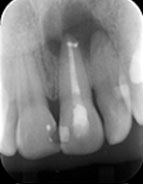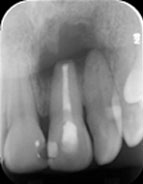- Home
- /
- Our Services
- /
- Endodontic Surgery
Endodontic Surgery
Know more about Endodontic Surgery
What is Endodontic Surgery/ Apical Surgery/ Apicectomy?
Endodontics surgery, apical surgery or apicoectomy is a surgical procedure that is required when root canal treatment fails. When such surgery is recommended, it may be because redoing root canal treatment serves limited therapeutic value. The following are the common instances where surgery is recommended.
- Persistent disease despite a well-done root canal treatment.
- Teeth with extensive restorations such as post and hard cores.
- Exploratory purposes for teeth with high suspicion of cracks.
Endodontic Surgical Procedure
Endodontic surgery can be performed under local anaesthesia to make patients feel comfortable. During the surgical procedure, an incision is made in the gum near the tooth in order to expose the inflamed or infected tissue. The affected tissue and root tip are then removed and the root is treated with a filling that seals up the exposed root canal. Afterward, the gums are sutured back for bones to heal around the end of the root over the next few months.
 Tooth with persistent infection
Tooth with persistent infection
 Apical surgery done, showing the root tip sectioned and managed
Apical surgery done, showing the root tip sectioned and managed
Benefits of Endodontic Surgery
Endodontic surgery can help patients to save their tooth and relieve pain associated with inflamed or infected tissue. The removal of affected tissue helps to prevent further complications such as infections and problems that can affect multiple teeth later on.
The endodontic surgical procedure is minimally invasive with short recovery time. Many patients find that they can return to their everyday activities within 3 days.
Risks and Complications of Endodontic Surgery
Apicectomy and endodontic surgery is a relatively easy procedure with a high success rate, especially when performed by a qualified and experienced endodontist or dentist. However, like any surgical procedure, there are risks associated with this procedure.
Some of the common complications are listed below.
- There is the risk of nerve damage when the surgical procedure is carried out on teeth located on the back of the lower jaw that is close to major nerves, like the mandibular nerve. Sometimes, after the procedure, patients may experience symptoms similar to nerve damage due to inflammation and swelling close to the nerves.
- If the damaged tooth is located on the upper jaw, there is a chance that infection can spread to the sinuses, leading to sinus infection. Most often, antibiotics and decongestants can be prescribed to treat the secondary infection.
Overall, complications to a patient’s general health due to endodontic surgery are rare. If these complications do arise, it is usually due to the patient’s pre-existing medical condition. If he/she is allergic to certain medications or materials or has any health condition that requires special care, the dentist or endodontist should be informed before the start of the surgical procedure.
